学会通知
会议简报
学术活动
《中文信息学报》目录
2014年《中文信息学报》订阅通知
中国中文信息学会关于缴纳2014年会员费的通知
依据《中国中文信息学会章程》的相关规定,学会拟开展2014年度会员费的收取工作,请各位会员于2014年2月28日前缴纳会费,完成当年学会会员的资格认证。
会员费的缴纳方式:
1.银行转账:
开户银行:工商行北京市分行海淀西区支行
户 名:中国中文信息学会
账 号:0200004509014415619
注:请在附言中注明会员姓名
2.邮局汇款:
地 址:北京8718信箱"中国中文信息学会"
收 款 人:中国中文信息学会
邮政编码:100190
联系电话:010-62562916
注:请在附言中注明会员姓名
3.中国中文信息学会办公室缴纳:
地 址:北京海淀区中关村南四街4号院7号楼201房间
联系电话:010-62562916
4.学会支付宝账号转账:
户 名:中国中文信息学会
注:请在付款说明中注明姓名、发票抬头等。
2014年度"中国中文信息学会"个人会员收费标准:
个人会员:120元/年
学生会员: 60元/年
会员经注册并缴费后,将获得会员登记号和会员证。在参加学会主办的各类学术活动时,凭会员证将享受会费优惠;定期获赠中国中文信息学会会员通讯(电子版)。
为鼓励更多学者加入学会,完成2014度会员登记的全体会员和部分学生会员(以缴费顺序,先到先得,赠完为止),将获赠2014年度全年《中文信息学报》(纸质版)。
会议简报
中国中文信息学会2013年学术年会暨理事会在苏州大学召开
10月9~12日,中国中文信息学会2013年学术年会暨理事会在苏州大学召开,来自全国的200多名中文信息领域的专家、学者与会。本次会议的主题是深度学习与中文信息处理。
本次会议开幕式由中国中文信息学会副理事长孙茂松教授主持。中国科协党组成员、书记处书记张勤出席开幕式并致辞。
张勤代表中国科协向大会的召开表示热烈的祝贺,向我国从事中文信息处理领域科研开发工作的专家学者和技术人员致以诚挚的问候和崇高的敬意。张勤指出,中国中文信息学会是中国科协所属的重要学会之一,成立32年以来,在我国著名科学家钱伟长、王选、陈力为等院士的支持下和全体会员的努力下,学会事业不断创新发展,凝聚力和影响力日益增强。这些年来中文信息处理领域1项成果获得国家最高科学技术奖,5项成果获得国家科技进步一等奖,15项成果获得国家科技进步二等奖,通过这些成果也促成了一大批以中文信息处理技术为核心的企业的发展,展示了我国中文信息处理领域科研人员克服困难、积极奋斗,不断取得自主创新成果,服务于我国信息化建设的光辉历程。
张勤希望中国中文信息学会坚持"三服务一加强"的工作职能,不断加强自身建设,提升为经济社会发展服务的能力,提升为提高全民科学素质服务的能力,提升为广大科技工作者服务的能力,更好地服务于当前从"中国制造"向"中国创造"转变、建设创新型国家的历史使命。
中国网民数和手机用户数已经居世界第一,中文信息处理技术在网络信息和知识服务、智能移动设备、信息内容安全等领域具有广阔的应用前景和迫切的市场需求。张勤希望中国中文信息学会在学会理事会和领导班子的带领下,充分发挥学会团结动员科技工作者的独特作用,弘扬老一辈科学家无私奉献的奋斗精神,引领我国中文信息处理事业不断走向新的辉煌,为实现中华民族伟大复兴的中国梦做出应有的贡献!
教育部国家语言文字信息管理司司长张浩明,苏州大学副校长路建美,中国中文信息学会理事长李生教授、李德毅院士、吾守尔•斯拉木院士等出席大会开幕式。
会议同期举办了第十二届全国计算语言学学术会议,全国计算语言学会议从1991年开始每两年举办一次,着重于中国境内各类语言(如汉语、藏语、蒙古语以及维吾尔语等)的计算处理,为传播计算语言学最新的学术和技术成果提供交流平台。
本次会议还举办了两个特别专题研讨会,第一届基于自然标注大数据的自然语言处理国际学术研讨会和第一届全国中文知识图谱研讨会,分别针对当前的新兴研究热点进行了深入的讨论、分享和交流。在为期三天的技术分会场交流环节,会议共设置了7个特邀报告、15个分组报告,共交流技术报告143篇。
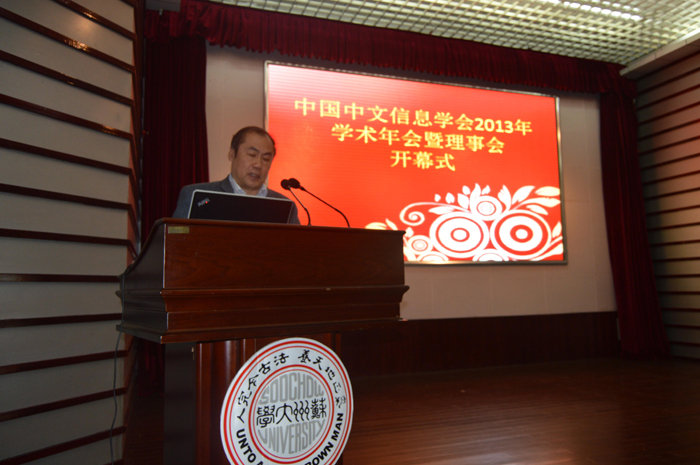 |
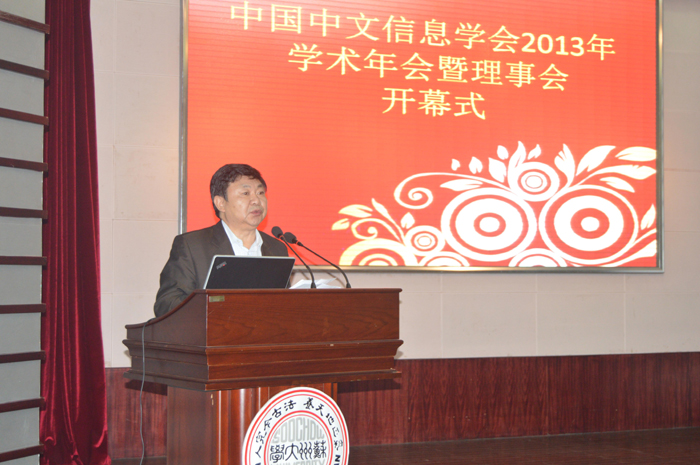 |
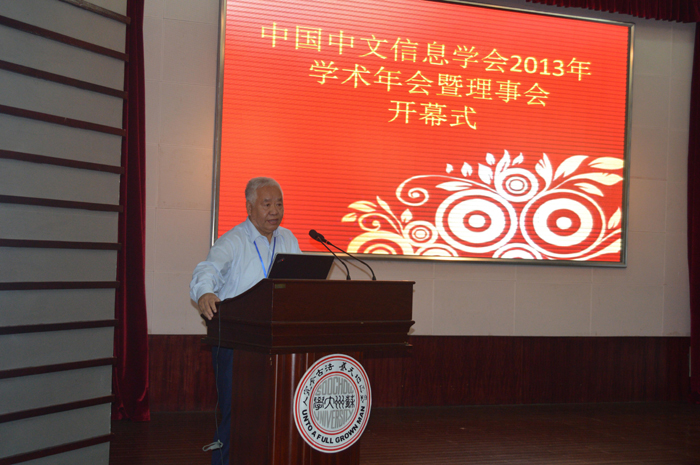 |
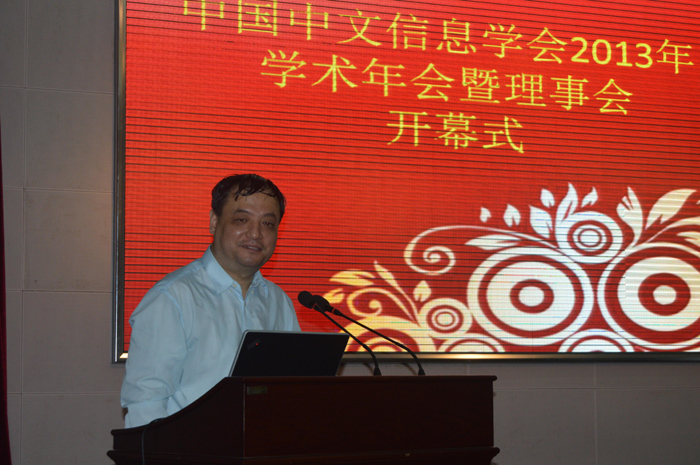 |
第十二届全国计算语言学学术会议(CCL2013)在苏州大学成功召开
2013年10月10日至11日,第十二届全国计算语言学会议(CCL 2013)在苏州大学成功召开。会议主办单位是中国中文信息学会计算语言学专业委员会,组织单位是清华信息科学与技术国家实验室,承办单位是苏州大学。
全国计算语言学会议是中国中文信息学会的旗舰会议,从1991年开始每两年举办一次。会议着重于中国境内各类语言(如汉语、藏语、蒙古语以及维吾尔语等)的计算处理,为传播计算语言学最新的学术和技术成果提供了广泛的交流平台。本次会议的大会主席由清华大学张钹院士、教育部语言信息管理司张浩明司长和中国科学院计算机语言信息工程研究中心董振东教授担任,程序委员会主席由清华大学孙茂松教授担任。会议同期举办了中国中文信息学会2013年学术年会、第一届基于自然标注大数据的自然语言处理国际学术研讨会和第一届中文知识图谱研讨会。
本届会议共收到论文投稿252篇,录用127篇,其中中文论文95篇,英文论文32篇。中文论文推荐至《中文信息学报》和《计算机工程与应用》发表,英文论文推荐至Springer Lecture Notes in Artificial Intelligence (LNAI)发表。
会议邀请了加拿大阿尔伯塔大学Randy Goebel教授、微软研究院邓力博士、谷歌公司林德康博士、美国伦斯勒理工学院季姮教授做特邀报告。四位特邀报告专家深入浅出地介绍了相关领域的国际前沿动态,受到与会代表的广泛欢迎。
会议安排了15个口头报告分会场和2个海报展示分会场,来自全国各地的四百余名与会代表就自然语言处理、深度学习、少数民族语言处理和社会计算等相关领域的前沿问题展开了深入的交流和探讨,学术氛围深厚。
中国中文信息学会计算语言学专委会决定从2014年开始,计算语言学会议由每两年一届调整为每年一届。2014年的第十三届计算语言学学术会议将在华中师范大学召开。
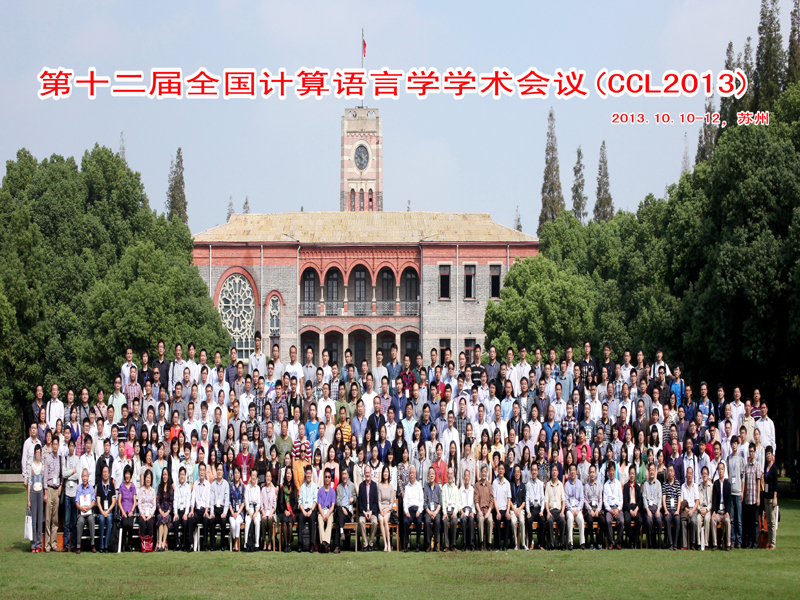 |
第14届全国民族语言文字信息处理学术研讨会
为促进和加快我国民族语言文字信息化的进程、加强各民族同行间的学术交流和合作,中国中文信息学会民族语言文字信息专业委员会在2013年9月13日至15日在甘肃省兰州市举办了 “中国第14届民族语言文字信息处理学术研讨会”。
本次会议得到了中国中文信息学会、教育部语言文字信息管理司、国家民委教科司、国家自然科学基金委员会、甘肃省科技厅等主管部门的大力支持,以及中文信息学会、教育部语言文字信息管理司、西北民族大学等单位的真诚赞助,在此我仅代表民族语言文字信息专委会向他们表示最诚挚的谢意!
本次会议共收到“民族语言信息处理相关标准与技术规范”、“民族语言词法、句法分析及算法”、“语言知识库构建”“实验语音学研究”、“民族语言机器翻译”、“自然语言处理的应用系统”等领域相关的研究论文74篇,经专委会委员通讯评审,收录61篇论文出版了“第14届少数民族语言文字信息处理学术会议”论文集。
本次会议有来自国内外大学及研究结构的80多位代表参加了会议。会上,中文信息学会副理事长吾守尔院士,北京大学俞士汶教授、清华大学孙茂松教授、马少平教授,中科院自动化所宗成庆研究员、天津大学党建武教授,以及西北民族大学李永宏博士做了精彩的特邀报告,对民族语言文字信息处理研究起到了很好的引导、规范、及示范作用。
本次会议期间,中国中文信息学会民族语言文字信息专委会还举行了扩大会议,进一步明确了专委会管理章程,并建议评选会议优秀论文15篇并推荐《中文信息学报》发表,10篇优秀青年论文,以及9项组织单位及个人贡献奖。同时经单位竞选申请、专委会扩大会议与会人员讨论投票确定第十五届少数民族语言信息处理学术研讨会议将由吉林延边朝鲜文信息学会及延边大学共同承办。
本届大会的召开,进一步促进了各民族代表的学术研究和交流,以及民族语言信息化的发展,加强了各单位之间语言信息处理的进一步合作,为早日解决少数民族语言文字领域的“数字鸿沟”发挥了应有的作用。会议取得了圆满的成功。
感谢各位与会代表!
让我们下届会议再次相聚在美丽的延吉长白山脚下!
祝我国民族语言文字信息处理事业的明天更加灿烂辉煌!
报告下载:
清华大学 马少平《语言无关的社交网络突发事件发现与情感分析方法》
天津大学 党建武《互联网时代信息交互与言语信息处理的前沿问题探讨》
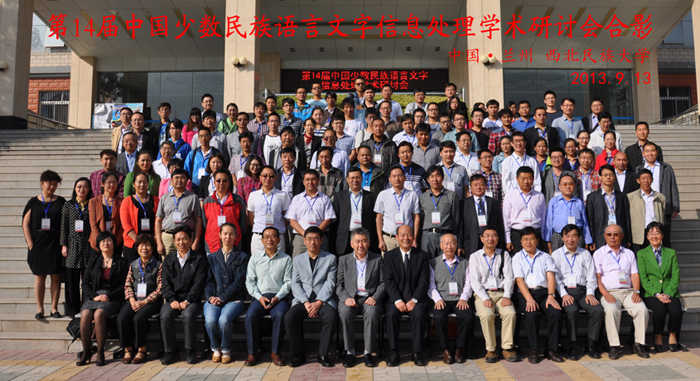 |
第九届全国机器翻译研讨会(CWMT2013)在昆明圆满召开
第九届全国机器翻译研讨会(CWMT2013)于2013年10月31日至11月1日在云南省昆明市召开。本次会议由中国中文信息学会主办,中国中文信息学会机器翻译专委会组织,昆明理工大学承办。参加本次会议的代表来自全国从事机器翻译理论与应用的研究机构和高校,共注册到会98人,会议共录用论文14篇和15家单位参加机器翻译评测的评测报告。投稿单位主要来自于中国专利信息中心、北京师范大学、东北大学、河北经贸大学、哈尔滨工业大学和昆明理工大学等高校及科研院所。其中有从事机器翻译研究的资深专家,也有青年学者和研究生。昆明理工大学副校长易健宏教授出席了会议开幕式并致辞。
全国机器翻译研讨会(CWMT)自2005年召开第一届以来,已成功召开了八届,共组织过四次机器翻译评测,一次开源系统模块开发和一次战略研讨,这些活动对于推动我国机器翻译技术的研究和开发产生了积极而深远的影响,CWMT已经成为我国自然语言处理领域颇具影响的学术活动。本次会议特别邀请到新加波科技设计大学张岳教授和中国科学技术信息研究所王惠临研究员做了精彩的特邀报告,同时,在本次会议组织的专题报告中,来自各高校及科研院所的老师和学生针对所录用的论文和评测内容进行了报告。这些报告及成果交流涵盖了机器翻译的重要研究方向,为机器翻译进一步的研究指明了方向,相信这次会议对促进机器翻译的研究有着非常重要的推动作用。
本次会议参会代表们进行了广泛的交流、探讨了目前在机器翻译领域的热点及重要的研究方向,大会交流面广,涉及内容众多,代表们各抒己见,互相启迪,互相受益。体现了自由争鸣、相互尊重、相互学习的良好学术风气。
在会议组织与承办过程中,得到了中国中文信息学会机器翻译专业委员会的大力支持和帮助,委员会给予了很多指导,提出了很多宝贵的建议。同时,会议组织也得到了承办单位昆明理工大学的大力支持与帮助。各位参会代表们对会议都给予了极大的支持与帮助!
本次会议圆满召开后,各位参会代表对会议研讨内容和会议组织上都给予了很高评价,组委会决定第十届全国机器翻译研讨会将于2014年由澳门大学承办。
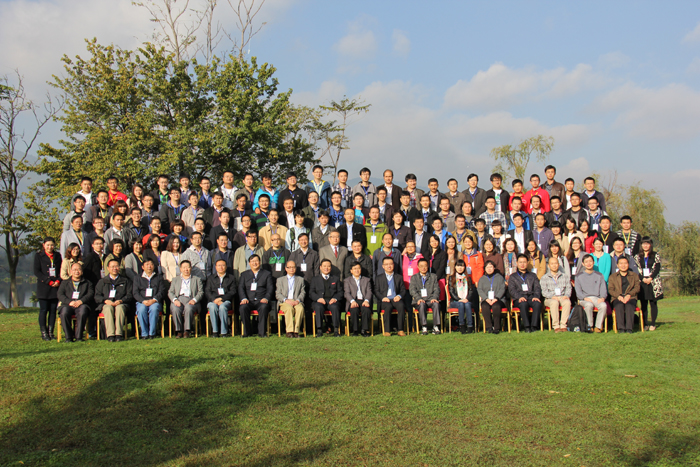 |
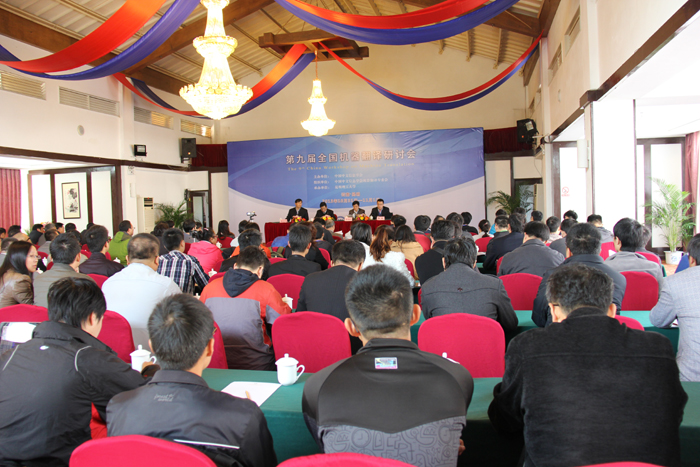 |
学术活动
Call For Participation: NTCIR-11 IMine Task
NTCIR是信息检索领域的重要国际评测论坛,今年刚刚结束的NTCIR-10中,有来自13个国家和地区的100余个研究组在反映检索研究前沿的各个任务中提交结果并参与评测,在SIGIR,CIKM,WWW等重要学术会议上,也有大量使用NTCIR数据集合进行实验的论文发表。
IMine(Intent Mining, 用户意图挖掘)是NTCIR-11新添加的任务,也是其6个核心检索任务之一,由来自清华大学、微软亚洲研究院、京都大学、爱丁堡大学的研究者共同组织。IMine的核心任务,是面向在搜索环境中广泛存在的歧义性查询需求进行挖掘与分析,探讨评价方法、改进查询性能。任务将使用ClueWeb12和SogouT数据集合进行检索,并提供搜索用户行为数据集合辅助分析,参加者所提交的结果将通过专业标注和众包标注两种方式进行评价。
目前,IMine任务已经开放注册,欢迎相关领域学术界、产业界研究人员积极参加。
初步日程安排:
注册截止:2013/12/20
查询主题发布:2014/01/10
结果提交:2014/05/23
评价结果发布:2014/08/01
评价论坛:2014/12/09
任务信息:http://www.thuir.org/imine/
任务注册:http://research.nii.ac.jp/ntcir/ntcir-11/howto.html
Call For Papers: ACM SIGIR 2014: THE 37th ANNUAL CONFERENCE
Conference website:http://sigir.org/sigir2014/
SIGIR is the major international forum for the presentation of new research results and for the demonstration of new systems and techniques in the broad field of information retrieval (IR). The Conference and Program Chairs invite all those working in areas related to IR to submit original papers for review. SIGIR 2014 welcomes contributions related to any aspect of IR theory and foundation, techniques, and applications. Relevant topics include, but are not limited to:
TOPICS
- Document Representation and Content Analysis (e.g., text representation, document structure, linguistic analysis, NLP for IR, cross- and multi-lingual IR, information extraction, sentiment analysis, clustering, classification, topic models, facets, text streams)
- Queries and Query Analysis (e.g., query intent, query suggestion and prediction, query representation and reformulation, query log analysis, conversational search and dialogue, spoken queries, summarization, question answering)
- Retrieval Models and Ranking (e.g., IR theory, language models, probabilistic retrieval models, learning to rank, combining searches, diversity and aggregated search)
- Search Engine Architectures and Scalability (e.g., indexing, compression, distributed IR, P2P IR, mobile IR, cloud IR)
- Users and Interactive IR (e.g., user studies, user and task models, interaction analysis, session analysis, exploratory search, personalized search, social and collaborative search, search interface, whole session support)
- Filtering and Recommending (e.g., content-based filtering, collaborative filtering, recommender systems)
- Evaluation (e.g., test collections, experimental design, effectiveness measures, session-based evaluation, simulation)
- Web IR and Social Media Search (e.g., link analysis, click models/behavioral modeling, social tagging, social network analysis, blog and microblog search, forum search, community-based QA, adversarial IR and spam, vertical and local search)
- IR and Structured Data (e.g., XML search, ranking in databases, desktop search, entity search)
- Multimedia IR (e.g., image search, video search, speech/audio search, music search)
- Other Applications (e.g., digital libraries, enterprise search, genomics IR, legal IR, patent search, text reuse, new retrieval problems)
CONTRIBUTION TYPES
Full papers (10 pages), Short papers (4 pages), Demos (3 pages), Tutorials, Workshops
INSTRUCTION
Requirements for paper format and appropriate content are described in the content guidelines. The requirements will be strictly enforced. Papers which do not conform to the requirements may be rejected without review, so please be sure to read this page carefully.Requirements for paper format and appropriate content are described in the content guidelines. The requirements will be strictly enforced. Papers which do not conform to the requirements may be rejected without review, so please be sure to read this page carefully.
SIGIR 2014 solicits proposals for tutorials of either half-day (3 hours plus breaks) or full day (6 hours plus breaks) on all topics of information retrieval and its applications. Each tutorial should cover a single topic in detail. Submissions should include a cover sheet and an extended abstract.
Proposals for workshops to be held at ACM SIGIR 2014 are also solicited. Workshops will usually last for one day and will be held on Friday 11th July 2014.
IMPORTANT DATES
- 20 January 2014: Abstracts for full research papers due
- 27 January 2014: Full research papers due
- 3 February 2014: Workshop proposals due
- 17 February 2014: Short paper, demonstration, and tutorial submission deadline
- 18 April 2014: Paper, short paper, tutorial, and demonstration acceptance notifications
- 11 May 2014: Camera ready copy due (note the short timeline due to early conference date)
- 16 May 2014: Early bird registration deadline
ORGANIZERS
General Chairs: Shlomo Geva, Andrew Trotman
PC Chairs: Peter Bruza, Charles L. A. Clarke, Kalervo Järvelin
Call For Papers:The 52nd Annual Meeting of the Association for Computational Linguistics(ACL 2014)
The Association for Computational Linguistics is pleased to announce that its 2014 Annual Meeting will take place in Baltimore, Maryland, USA on June 22nd to 27th. The conference invites the submission of long and short papers on substantial, original, and unpublished research in all aspects of automated language processing. ACL 2014 will accept papers accompanied by the resource (software or data) described in the paper. In addition to the regular review of the research quality of the paper, these papers will also be reviewed for the quality of the resource available. Papers that are submitted with accompanying software/data will receive additional credit toward the overall evaluation score, and acceptance or rejection decision will be made based on the quality of both the research and the software/data component. As done at ACL 2013, some of the presentations at the conference will be of papers accepted for the new Transactions of the ACL journal (http://www.transacl.org/). Note that the official publication date for papers at ACL 2014 will be one week before the conference starts.
ACL 2014 has the goal of a broad technical program. Thus, ACL 2014 invites papers in the following categories:
- Applications/tools
- Empirical/data-driven approaches (submissions reporting negative results of sensible experiments are also welcome)
- Resources and evaluation
- Theoretical
- Survey papers
ACL 2014 will use different review forms, with the review forms tailored to the type of submission.
Topics
Relevant topics for the conference include, but are not limited to, the following areas (in alphabetical order):- Cognitive modeling of language processing and psycholinguistics
- Dialogue and interactive systems
- Discourse, coreference and pragmatics
- Evaluation methods
- Generation
- Information retrieval
- Language resources
- Lexical semantics and ontologies
- Low resource language processing
- Machine translation: methods, applications and evaluation
- Mathematical linguistics, grammatical formalisms
- Multilinguality in NLP
- NLP applications
- NLP for the Web and social media
- Phonology/Morphology, word segmentation
- Tagging and chunking
- Question answering
- Semantics
- Sentiment analysis, opinion mining and text classification
- Spoken language processing
- Statistical and Machine Learning methods in NLP
- Summarization
- Syntax and parsing
- Text mining and information extraction
Important Dates
- Long Submission Deadline: January 10, 2014 (11:59pm PST)
- Long Notification: March 5, 2014
- Long Camera Ready Deadline: April 11, 2014
- Short Submission Deadline: March 12, 2014 (11:59pm PST)
- Short Notification: April 17, 2014
- Short Camera Ready Deadline: April 30, 2014
- Conference Starts: June 22, 2014
Submissions
Long papers: ACL 2014 submissions must describe substantial, original, completed and unpublished work. Wherever appropriate, concrete evaluation and analysis should be included. Submissions will be judged on appropriateness, clarity, originality/innovativeness, correctness/soundness, meaningful comparison, thoroughness, significance, contributions to research resources, and replicability. Each submission will be reviewed by at least three program committee members. Long papers may consist of up to eight (8) pages of content, plus two extra pages for references; final versions will allow nine pages of content and should take into account reviewers' comments. Papers will be presented orally or as posters as determined by the program committee. Decisions on presentation format will be based on the nature rather than the quality of the work. There will be no distinction in the proceedings between long papers presented orally and as posters.
Short papers: ACL 2014 also solicits short papers. Short paper submissions must describe original and unpublished work. Characteristics of short papers include:
- A small, focused contribution
- Work in progress
- A negative result
- An interesting application nugget
Short papers will be presented in one or more oral or poster sessions, and will be given four (4) pages plus 2 pages for references in the proceedings. While short papers will be distinguished from long papers in the proceedings, there will be no distinction in the proceedings between short papers presented orally and posters. Each short paper submission will be reviewed by at least three program committee members.
Electronic Submission:
Submission is electronic, using the Softconf submission software at https://www.softconf.com/acl2014/papers for long papers and https://www.softconf.com/acl2014/shortpapers for short papers.Format:
Long paper submissions should follow the two-column format of ACL 2014 proceedings without exceeding eight (8) pages of content plus two extra pages for references. Short paper submissions should also follow the two-column format of ACL 2014 proceedings, and should not exceed four (4) pages plus at most 2 pages for references. We strongly recommend the use of ACL LaTeX style files or Microsoft Word style files tailored for this year's conference. Submissions must conform to the official style guidelines, which are contained in the style files, and they must be in PDF.As the reviewing will be blind, papers must not include authors' names and affiliations. Furthermore, self-references that reveal the author's identity, e.g., "We previously showed (Smith, 1991) ..." must be avoided. Instead, use citations such as "Smith previously showed (Smith, 1991) ..." Papers that do not conform to these requirements will be rejected without review. In addition, please do not post your submissions on the web until after the review process is complete.
ACL 2014 Style Files:
Important: Remove authors information from your manuscripts when submitting them for blind review!
- acl2014.tex (Latex)
- acl2014.sty (Latex)
- acl2014.pdf (Latex)
- acl.bst (Latex)
- acl2014.dot (MSWord)
Multiple-submission policy:
Papers that have been or will be submitted to other meetings or publications must indicate this at submission time. Authors of multiply submitted papers accepted by ACL 2014 must notify the program chairs whether the paper will be presented at ACL 2014 within two days of acceptance. We will not accept for publication or presentation papers that overlap significantly in content or results with papers that will be (or have been) published elsewhere. Authors submitting more than one paper to ACL must ensure that submissions do not overlap significantly (>25%) with each other in content or results. More details on the ACL multiple-submission policy can be found at http://aclweb.org/adminwiki/index.php?title=Guidelines_and_policies.Presentation requirement:
All accepted papers must be presented at the conference to appear in the proceedings. At least one author of each accepted paper must register for ACL 2014.
General Chair
Daniel Marcu, SDL and ISI/USC
Program Co-Chairs
Kristina Toutanova, Microsoft ResearchHua Wu, Baidu
SemEval 2015 - Call for Task Proposals
SemEval-2015: 8th International Workshop on Semantic Evaluations
Call for Task Proposals
We invite proposals for tasks to be run as part of SemEval-2015.
http://alt.qcri.org/semeval2015/
Starting with 2015, SemEval will run on a two-year cycle, which will give both task organizers and task participants more time for all steps of the process, including data preparation, system design, analysis, and paper writing.
We welcome tasks that can test an automatic system for semantic analysis of text, be it application-dependent or application-independent. We especially welcome tasks for different languages and cross-lingual tasks.
We encourage the following aspects in task design:
Common data formats
To ensure that newer annotations conform to existing annotation standards, we encourage the use of existing data encoding standards such as MASC and UIMA. Where possible, reusing existing annotation standards and tools will make it easier to participate in multiple tasks. Moreover, the use of readily available tools should make it easier for participants to spot bugs and to improve their systems.
Common texts and multiple annotations
For many tasks, finding suitable texts for building training and testing datasets in itself can be a challenge or somewhat ad hoc. To make it easier for task organisers to find suitable texts, we encourage the use of resources such as Wikipedia, ANC and OntoNotes. Where this makes sense, the SemEval program committee will encourage task organizers to share the same texts for different tasks. In due time, we hope that this process will allow the generation of multiple semantic annotations for the same text.
Baseline systems
To lower the obstacles to participation, we encourage the task organizers to provide baseline systems that participants can use as a starting point. A baseline system typically contains code that reads the data, creates a baseline response (e.g., random guessing), and outputs the evaluation results. If possible, baseline systems should be written in widely used programming languages. We also encourage the use of standards such as UIMA.
Umbrella tasks
To reduce fragmentation of similar tasks, we will encourage task organisers to propose larger tasks that include several subtasks. For example, Word Sense Induction in Japanese and Word Sense Induction in English could be combined into a single umbrella task that includes several subtasks. We welcome task proposals for such larger tasks. In addition, the program committee will actively encourage task organisers proposing similar tasks to combine their efforts into larger umbrella tasks.
Application-oriented tasks
We welcome tasks that are devoted to developing novel applications of computational semantics. As an analogy, the TREC Question-Answering (QA) track was solely devoted to building QA systems to compete with current IR systems. Similarly, we will encourage tasks that have a clearly defined end-user application showcasing and are enhancing our understanding of computational semantics, as well as extending the current state-of-the-art.
IMPORTANT DATES
SemEval-2015
- Task proposals due January 30, 2014
- Tasks chosen/merged February 28, 2014
- Trial data ready April 30, 2014
- Training data ready July 30, 2014
- Test data ready October 2014
- Evaluation start November 15, 2014
- Evaluation end November 30, 2014
- Paper submission due January 30, 2015
- Paper reviews due February 28, 2015
- Camera ready due March 30, 2015
- SemEval workshop Summer 2015
The SemEval-2015 Workshop will be co-located with a major NLP conference in 2015.
SUBMISSION DETAILS
The task proposals should ideally contain the following:
- A summary description of the task
- How the training/testing data will be built and/or procured
- The evaluation methodology to be used, including clear evaluation criteria
- The anticipated availability of the necessary resources to the participants (copyright, etc.)
- The resources required to prepare the task (computation and annotation time, costs of annotations, etc)
If you are not yet at a point to provide outlines of all of these, that is acceptable, but please give some thought to each, and present a sketch of your ideas. We will gladly give feedback.
Please submit proposals as soon as possible, preferably by electronic mail in PDF format to the SemEval email address:
semeval-organizers@googlegroups.com
CHAIRS
Preslav Nakov, Qatar Computing Research Institute
Torsten Zesch, University of Duisburg-Essen, Germany
The SemEval DISCUSSION GROUP
Please join our discussion group at [email protected] in order to receive announcements and participate in discussions.
The SemEval-2015 Website:
http://alt.qcri.org/semeval2015/
Read more:http://portal.aclweb.org/content/semeval-2015-call-task-proposals
《中文信息学报》目录
《中文信息学报》第27卷,第6期 2013年12月目录
题目 |
作者 |
页码 |
| HDP与互信息相结合的中文无指导分词 | 曹自强,李素建 | 1 |
| 上古汉语分词及词性标注语料库的构建——以《淮南子》为范例 | 留金腾,宋 彦,夏 飞 | 6 |
| 基于混合策略的汉语最长名词短语识别 | 钱小飞,侯 敏 | 16 |
| 基于生成词库论和论元结构理论的语义知识体系研究 | 袁毓林 | 23 |
| 基于中文维基百科的词语语义相关度计算 | 万富强,吴云芳 | 31 |
| 中文事件事实性信息语料库的构建方法 | 曹 媛,朱巧明,李培峰 | 38 |
| 基于HNC概念关联性的领域判定研究 | 池哲洁,张 全 | 45 |
| 中文篇章级句间语义关系识别 | 张牧宇,宋 原,秦 兵,刘 挺 | 51 |
| 联合语义角色标注和指代消解 | 熊 皓, 刘 群,吕雅娟 | 58 |
| 基于概念特征的汉语交互类言说动词语义分析及同义词群的建构 | 肖 珊,郭婷婷 | 69 |
| 基于双语信息和标签传播算法的中文情感词典构建方法 | 李寿山,李逸薇,黄居仁,苏 艳 | 75 |
| 一种基于情绪表达与情绪认知分离的新型情绪词典 | 徐睿峰,邹承天,郑燕珍,徐 军,桂 林,刘 滨,王晓龙 | 82 |
| 基于情绪相关事件上下文的隐含情绪分类方法研究 | 李寿山,李逸薇,刘欢欢,黄居仁 | 90 |
| 面向半监督情感分类的特征选择方法研究 | 王志昊,王中卿,李寿山,李培峰,施寒潇 | 96 |
| 评价短语的倾向性分析研究 | 侯 敏,滕永林,陈毓麒 | 103 |
| 基于多特征融合的中文比较句识别算法 | 张 辰,冯 冲,刘全超,师 超,黄河燕,周海云 | 110 |
| 应用hLDA进行多文档主题建模关键因素研究 | 衡 伟,于 佳,李 蕾,刘咏彬 | 117 |
| 汉语自然话语的音高下倾 | 王茂林,訾广玲,熊 玮,林茂灿 | 128 |
| 基于强制对齐的层次短语模型过滤和优化 | 付晓寅,魏 玮,卢世祥,徐 波 | 134 |
| 基于虚拟上下文的统计机器翻译短语表的过滤 | 殷 乐,张玉洁,徐金安 | 139 |
| 一种基于分类的平行语料选择方法 | 王 星,涂兆鹏,谢 军,吕雅娟,姚建民 | 144 |
| 基于中英平行专利语料的短语复述自动抽取研究 | 李 莉,刘知远,孙茂松 | 151 |
| 汉英篇章结构平行语料库的对齐标注研究 | 冯文贺 | 158 |
| 藏语句法功能组块的边界识别 | 李 琳,龙从军,江 荻 | 165 |
| 蒙古文输入法输入码方案研究 | 白双成,张劲松 ,呼斯勒 | 169 |
| 基于统计翻译框架的蒙古文自动拼写校对方法 | 苏传捷,侯宏旭,杨 萍,员华瑞 | 175 |
| 维哈柯及蒙语多文种语言相似性考查研究 | 王 玲,达瓦·伊德木草,吾守尔·斯拉木 | 180 |
| 傣文自动分词系统的设计与实现 | 高廷丽,陶建华,戴红亮,李 雅 | 187 |
| 规则与统计相结合的日语时间表达式识别 | 赵紫玉,徐金安,张玉洁,刘江鸣 | 192 |
| 基于新闻语料库的越南语框架语义标注研究 | 林 丽 | 201 |
2014年《中文信息学报》订阅通知
2014年《中文信息学报》订阅通知
《中文信息学报》( Journal of Chinese Information Pro- cessing )是全国一级学会—社团法人中国中文信息学会和中国科学院软件研究所联合主办的学术性刊物,创刊于1986年10月,现为双月刊。2007年改版为大16开,每期128页,由商务印书馆出版,成为商务印书馆期刊方阵中的期刊之一,清华大学印刷厂印刷。
《中文信息学报》是我国计算机、计算技术类83种刊物中的中文核心期刊。主要刊登中文信息处理基础理论与应用技术方面的高水平学术论文,内容涵盖计算语言学(包括语音与音位、词法、句法、语义、语用等各个层面上的计算),语言资源建设(包括计算词汇学、术语学、电子词典、语料库、知识本体等),机器翻译或机器辅助翻译,汉语和少数民族语言文字输入输出及其智能处理,中文手写和印刷体识别,中文语音识别及文语转换,信息检索,信息抽取与过滤,文本分类、中文搜索引擎,以自然语言为枢纽的多模态检索,与语言处理相关的数据挖掘、机器学习、知识获取、知识工程、人工智能研究,与语言计算相关的语言学研究等。也刊登相关综述、研究报告、成果简介、书刊评论、专题讨论、国内外学术动态等稿件。
读者对象主要是从事中文信息处理的研究人员、工程技术人员和大专院校师生等。
《中文信息学报》(国内统一刊号:CN11-2325/N;国际统一刊号:ISSN 1003-0077)国内外公开发行,国内定价每期15元,全年90元;海外US$50/年(平邮)。
国内发行处:《中文信息学报》编辑部
国外发行处:中国图书进出口总公司 100020 北京88-E信箱
1.邮局汇款
收款单位:《中文信息学报》编辑部
地 址:北京8718信箱 《中文信息学报》编辑部
邮政编码:100190
收 款 人:《中文信息学报》编辑部
2.银行转账
开户银行:工商行北京市分行海淀西区支行
户 名:中国中文信息学会
账 号:0200004509014415619
《中文信息学报》编辑部
地 址:北京海淀区中关村南四街4号院7号楼201房间
电 话:010-62562916 010-62661046
电子信箱:[email protected]
|
收刊地址
|
|
邮政编码
|
|
||
|
订户姓名
|
|
订户单位
|
|
||
|
价 格
|
90元/年
|
订阅份数
|
|
||
|
总计人民币(大写)
|
|
||||
|
经手人
|
|
电 话
|
|
年 月 日
|
|
2014年《中文信息学报》订阅表下载
值此新年来临之际,中国中文信息学会感谢您长期以来的支持和帮助,祝您和您的家人新年快乐、身体健康、阖家幸福!
 |